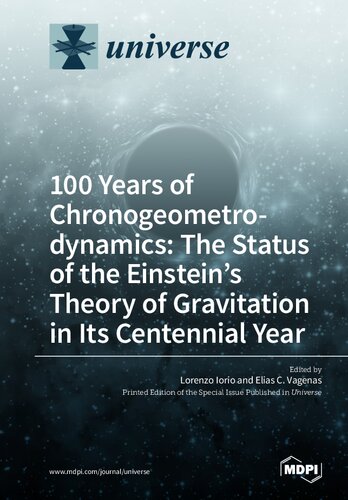

Most ebook files are in PDF format, so you can easily read them using various software such as Foxit Reader or directly on the Google Chrome browser.
Some ebook files are released by publishers in other formats such as .awz, .mobi, .epub, .fb2, etc. You may need to install specific software to read these formats on mobile/PC, such as Calibre.
Please read the tutorial at this link: https://ebookbell.com/faq
We offer FREE conversion to the popular formats you request; however, this may take some time. Therefore, right after payment, please email us, and we will try to provide the service as quickly as possible.
For some exceptional file formats or broken links (if any), please refrain from opening any disputes. Instead, email us first, and we will try to assist within a maximum of 6 hours.
EbookBell Team

4.0
66 reviewsOne of them who, just over 200 years later, picked up the baton of Newton was Albert Einstein. His General Theory of Relativity, which had its centenary in 2015, opened up new windows on our comprehension of Nature, disclosed new, previously unpredictable, phenomena occurring when relative velocities dramatically change in intense gravitational fields reaching values close to the speed of light and, for the first time after millennia of speculations, put Cosmology on the firm grounds of empirically testable science. This Special Issue was dedicated to this grand achievement of the human thought.